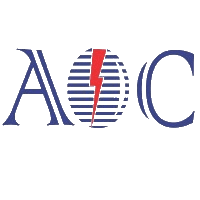Ensuring Reliability: Benefits of Regular Ultra High Voltage System Testing
Introduction to Ultra High Voltage Systems
In today's fast-paced world, the demand for electricity continues to rise, leading to the development of ultra high voltage (UHV) systems. These systems are essential for transmitting power over long distances with minimal losses. However, maintaining their reliability is crucial to ensure that communities and industries receive uninterrupted power supply.
To achieve this, regular testing of UHV systems is paramount. This not only helps in identifying potential issues before they become significant problems but also enhances the overall efficiency and reliability of the power grid.

The Importance of Regular Testing
Preventing Failures and Downtime
One of the primary benefits of regular UHV system testing is the prevention of unexpected failures and downtimes. By conducting these tests, operators can detect and address issues such as insulation deterioration, component wear, or system overloads. This proactive approach helps in maintaining the stability of the power supply, which is vital for both residential and commercial users.
Enhancing System Efficiency
Regular testing also plays a crucial role in enhancing the efficiency of UHV systems. By identifying inefficiencies or bottlenecks within the system, engineers can make necessary adjustments to optimize performance. This could involve recalibrating equipment, updating software, or even replacing outdated components. Ultimately, these improvements lead to a more sustainable energy transmission process.

Ensuring Safety and Compliance
Meeting Regulatory Standards
UHV systems must comply with stringent regulatory standards to ensure safe and reliable operation. Regular testing is essential for verifying that these systems meet all necessary guidelines and protocols. Compliance not only ensures safety but also helps in avoiding potential legal issues and financial penalties associated with non-compliance.
Protecting Infrastructure
The infrastructure supporting UHV systems is a significant investment. Regular testing helps in safeguarding this infrastructure by identifying vulnerabilities before they lead to costly repairs or replacements. This proactive maintenance strategy extends the life of the equipment and supports the sustainable development of the power grid.

Technological Advancements in Testing
Innovative Testing Methods
Technological advancements have brought about innovative testing methods that provide more accurate and reliable results. Techniques such as real-time monitoring, predictive analytics, and automated diagnostics have revolutionized the way UHV systems are tested and maintained. These technologies enable operators to gather comprehensive data and make informed decisions quickly.
Cost-Effective Solutions
While regular testing may seem like an added expense, it is a cost-effective solution in the long run. By preventing failures and optimizing performance, testing reduces the need for emergency repairs and minimizes operational costs. Investing in advanced testing technologies can lead to significant savings and enhance the overall reliability of the power grid.

Conclusion
In conclusion, regular ultra high voltage system testing is a critical component of ensuring a reliable and efficient power supply. By preventing failures, enhancing efficiency, ensuring safety, and leveraging advanced technologies, regular testing provides numerous benefits. As the demand for electricity continues to grow, investing in consistent testing practices will remain a key strategy for maintaining a robust and resilient power infrastructure.
